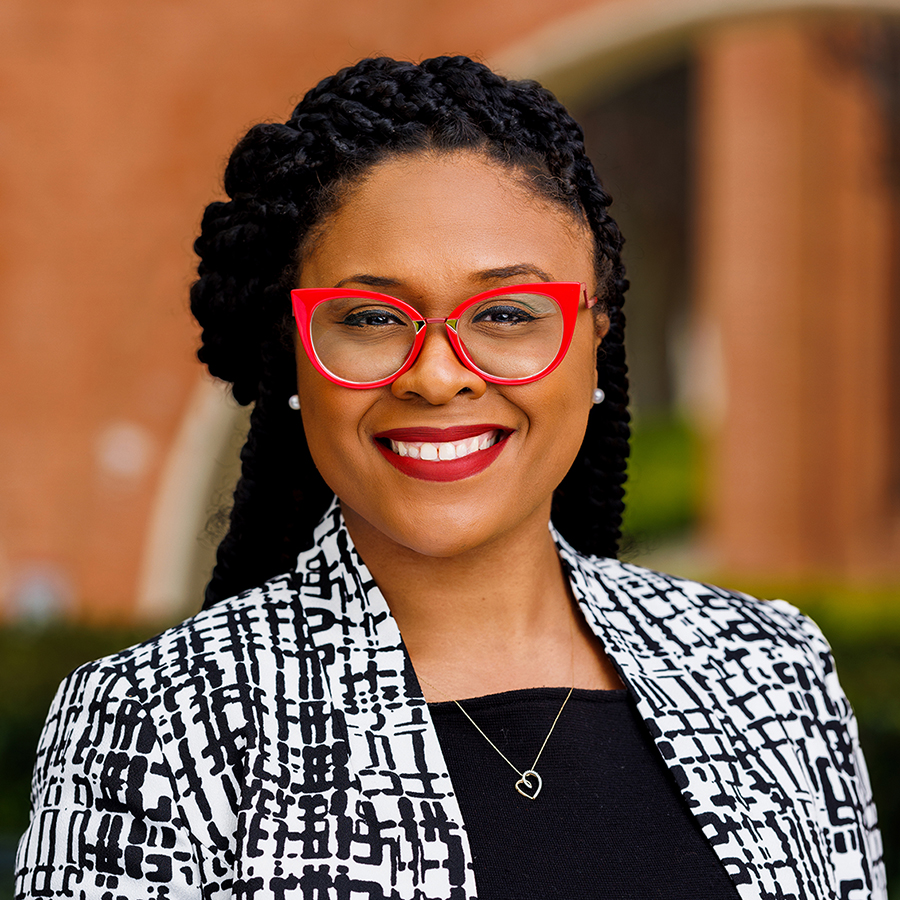Postdoctoral scholar Mariama Nagbe shares her desires and goals for her next stop in academia.
You’ve been a postdoctoral scholar/researcher at the Pullias Center since 2022, working on an aspect of the Promoting At-Promise Student Success (PASS) Project (Phase 2) primarily focused on Professional Learning Communities (PLCs) with Zoë Corwin and Adrianna Kezar. Please share what your experience has been like for you, and how your previous education and experiences informed this position.
I entered this position with professional experience as a mid-level administrator in academic and student affairs, embodied knowledge as a Black woman and first generation doctoral degree holder, as well as scholarly expertise at the nexus between Black/Africana studies, sociology, social work, critical management studies, and higher education. My positionality prepared me to fulfill pivotal roles and responsibilities throughout this project: project management, data management and analysis, cross-campus liaison, curriculum development and facilitation, lead author and co-author on academic/practitioner publications, mentor, scholar-educator, and intellectual activist.
How do you believe that your professional skills and research abilities have evolved since beginning work on the project? Is this what you expected when you first joined the Center?
The magnitude of working on a $5.6 million grant-funded, mixed-methods, longitudinal study situated across three campuses within one university system has furthered my development and expanded my academic networks. I brought prior experiences working on grant-funded projects at three top-tier, research universities across the United States. One pleasant surprise on the PASS project has been my experience mentoring and teaching masters and doctoral students how to understand and apply frameworks from critical organizational theory and Black intellectual thought to analyze PLC data using qualitative software through two scholarly papers I am leading on this project — one of which will be presented at the 2024 AERA convening.
What aspect(s) of the project have you enjoyed the most? And how will this affect what type of position you’re looking for now?
Joining this project prepared me to pursue major research grants, manage a research team, hire collaborators, publish in academic journals, and advise/mentor research assistants of my own as a tenure-track professor. Because higher education is an applied field, I welcomed the opportunity to advance higher education research, theory, and practice with colleagues throughout this project. Designing and facilitating organizational learning activities during the PLC meetings was one of my most meaningful contributions. This is important because the perspectives PLC participants gain or create in our sessions have immediate influence over their organizational learning, critical consciousness, and institutionalized practices while they work collaboratively to support historically-marginalized students as a campus-wide responsibility.
Please describe your dream position in academia:
I am a daughter of Detroit, Michigan and Monrovia, Liberia. Therefore, I thrive in spaces where the intellectual, instructional, intercultural and innovative contributions of Black academics and the communities we serve are adequately protected, meaningfully partnered with, and intentionally prioritized. My freedom dreams of rupturing organizational structures of anti-Blackness in higher education are big and requires me to be at a campus where institutional commitments to justice in all its forms are bold. As I continue to navigate the tenure-track faculty job market at research-intensive universities, I look forward to joining a campus community that is open to embracing the collaborative praxis of what my colleague Dr. Dwuana Bradley refers to as emancipatory relationality, “[a] concept ask[ing] educational stakeholders…to consider the degree to which our labor (and labor relations) serve to liberate Black people and Black communities from anti-Blackness, coloniality, and other forms of oppressive domination.”
Contact Mariama Nagbe here.








